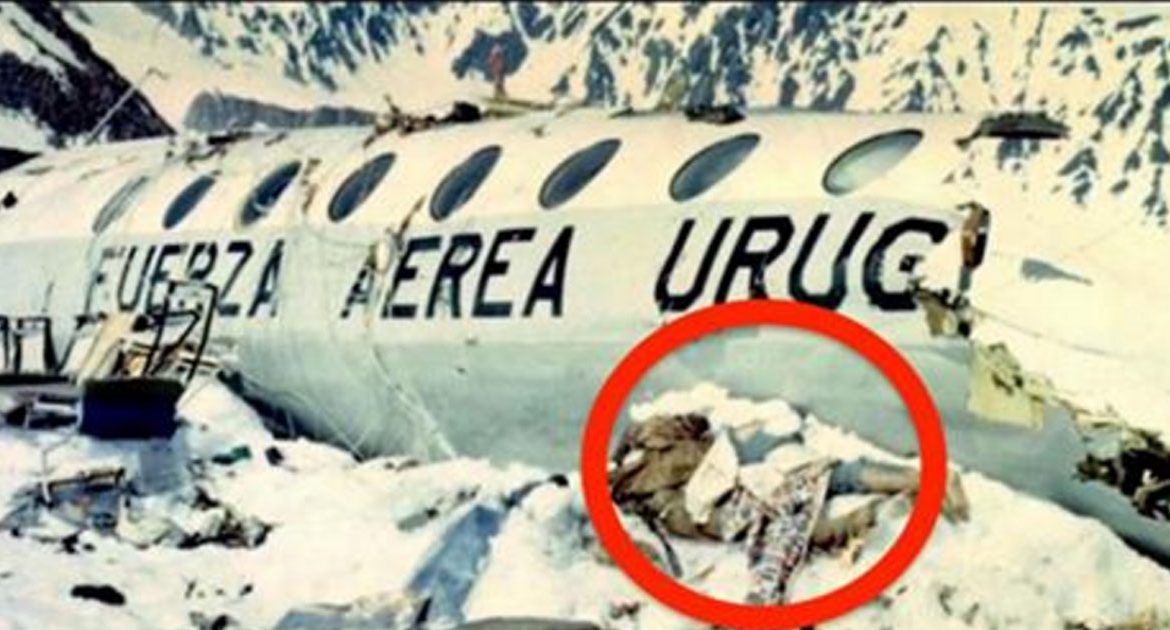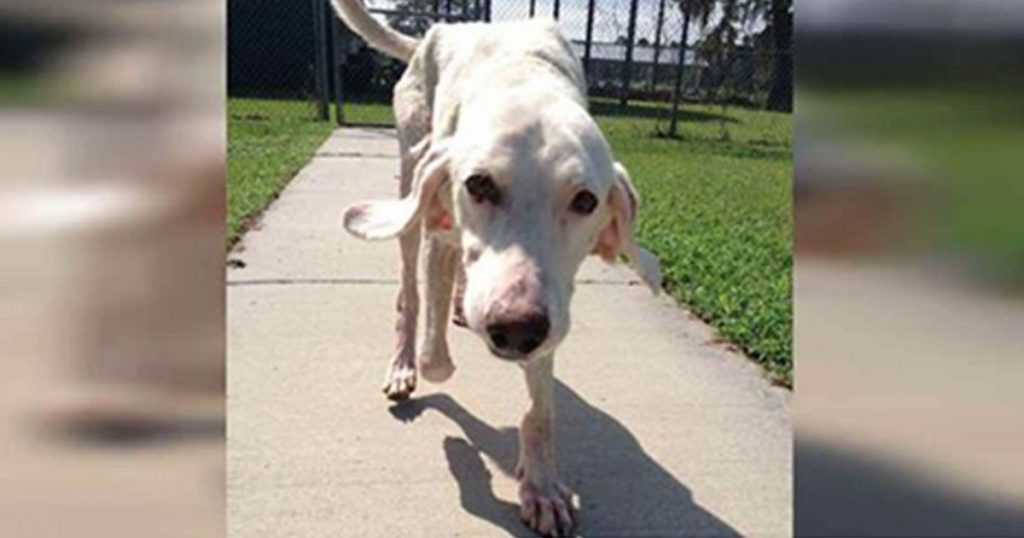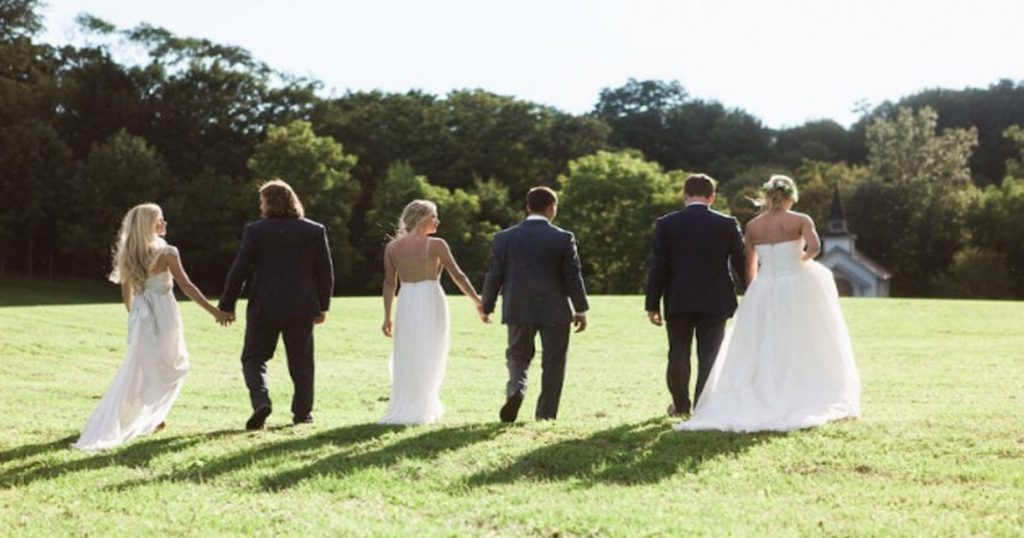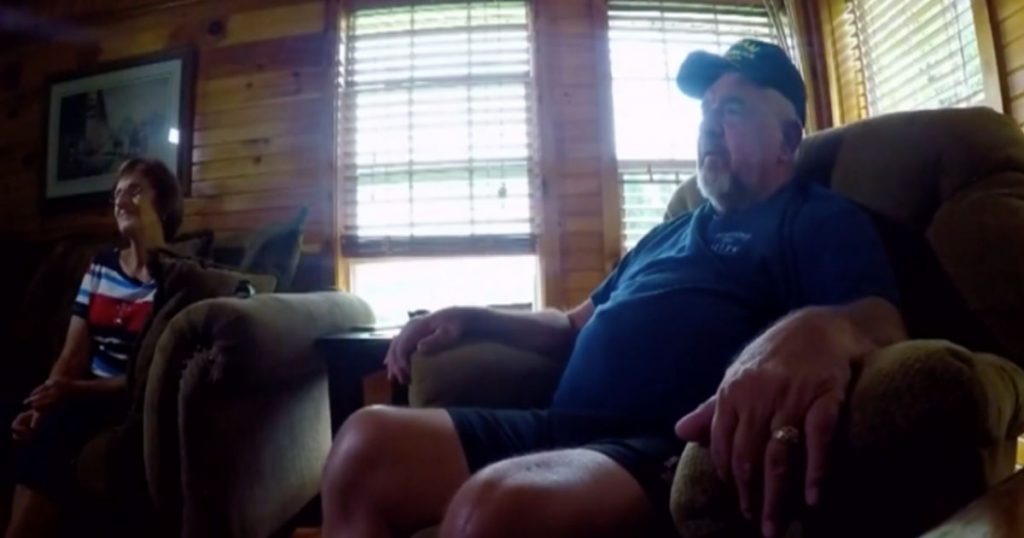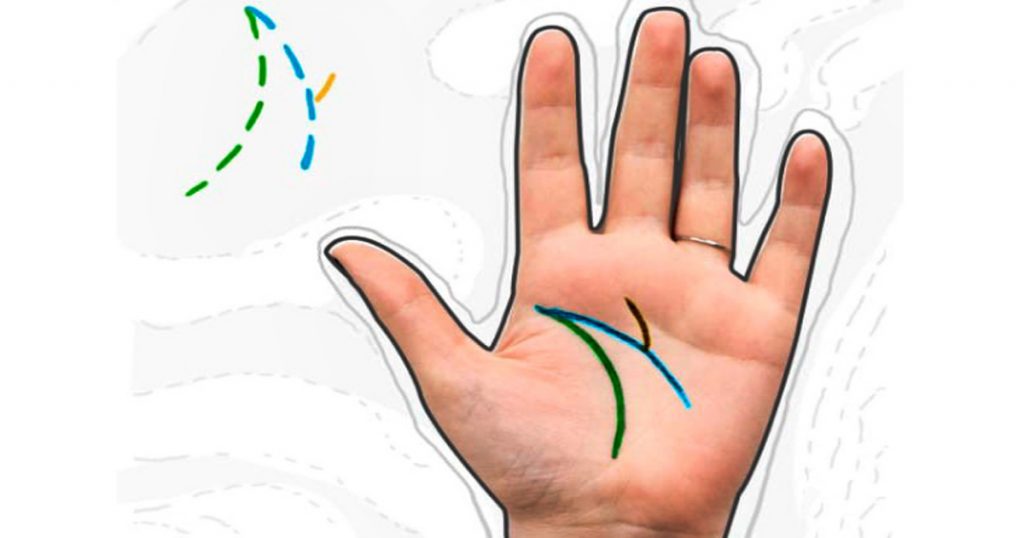The survival instinct is something that never ceases to amaze us. Sometimes, when it seems that all hope is lost, people manage to find an inner strength that helps them to overcome an extreme situation. That is exactly what happened to Carlos Páez. In 1972 he experienced something that will haunt him for the rest of his days.
In October of that year, a rugby team from Uruguay flew over the Andes mountain range on their way to Chile to play a game. Among the members of the Old Christians (the team’s name) was Carlos. While over the mountains they experienced some turbulence and the young men joked about the plane crashing. But their laughter didn’t last long.
The plane continued to shake violently and the situation became very serious. The pilot fought against the weather but the plane was losing altitude steadily. The passengers looked out the window in horror as they watched the wing coming ever closer to the mountainside. Soon panic set in.
The pilot was facing an extreme situation: after clearing a bank of fog he saw the plane heading straight for a peak. He avoided the frontal collision, which would have been fatal. But while rounding the peak, one of the wings and part of the tail section struck the mountain and were torn off.
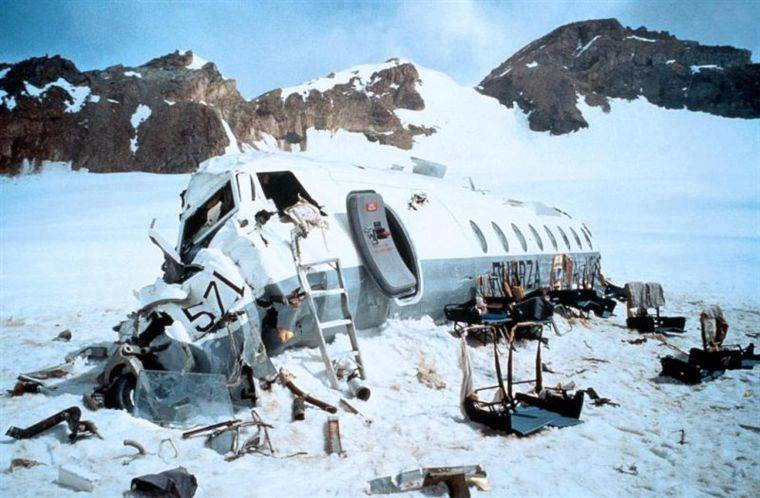
This blow left a gaping hole in the back of the fuselage and five passengers were quickly sucked out and fell to their deaths. The plane was now completely out of control and lost its remaining wing which caused two more passengers to fall out. The now wingless fuselage crashed into the snow and slid down the mountain until finally being stopped by a large snowbank.
The impact of the crash left several people injured. Yet, amazingly, many others had remained strapped in their padded seats and were unharmed. One of the pilots died during the crash and the co-pilot was so badly injured and in such agonizing pain that he pleaded for the others to put him out of his misery. After suffering through the first night, he succumbed to his injuries the next day.
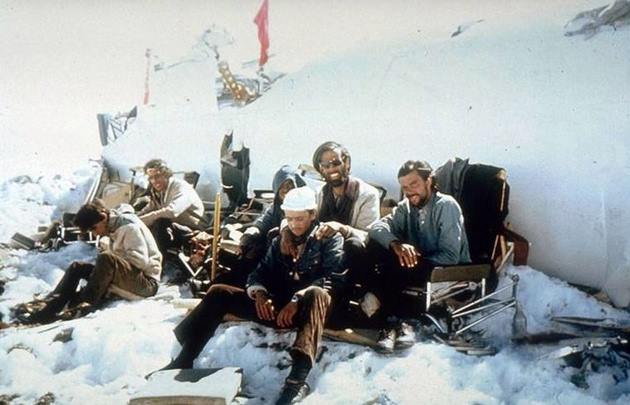
In total, out of the 45 passengers, 13 died in the crash and five more in the following days. The 27 survivors had to fight to survive at an altitude of 12,000 feet in temperatures as low as 42 degrees below zero. Using the plane as shelter, they managed to make blankets from the upholstery and huddled together to stay warm. The group also found a battery-powered radio which allowed them to listen to news reports about the crash. Unfortunately, this dealt a blow to their morale when, after 11 days on the mountain, they heard that the search had been called off.
On day 16 fate struck yet another blow: an avalanche buried the remains of the plane where the survivors were sheltered. Eight people were buried alive and died of asphyxiation. Over the next month and a half, three more members of the group died of infected wounds. And to make matters worse, the survivors who were left were running out of food.
Until that point they had rationed the provisions, but the supply was nearly depleted. Carlos recounts how extreme his situation was: «In ten days I had ten little pieces of chocolate and a can of cockles… there was nothing left in the pantry.» Then one my friends looked at me and said, ‘I’ll eat the pilot.'»
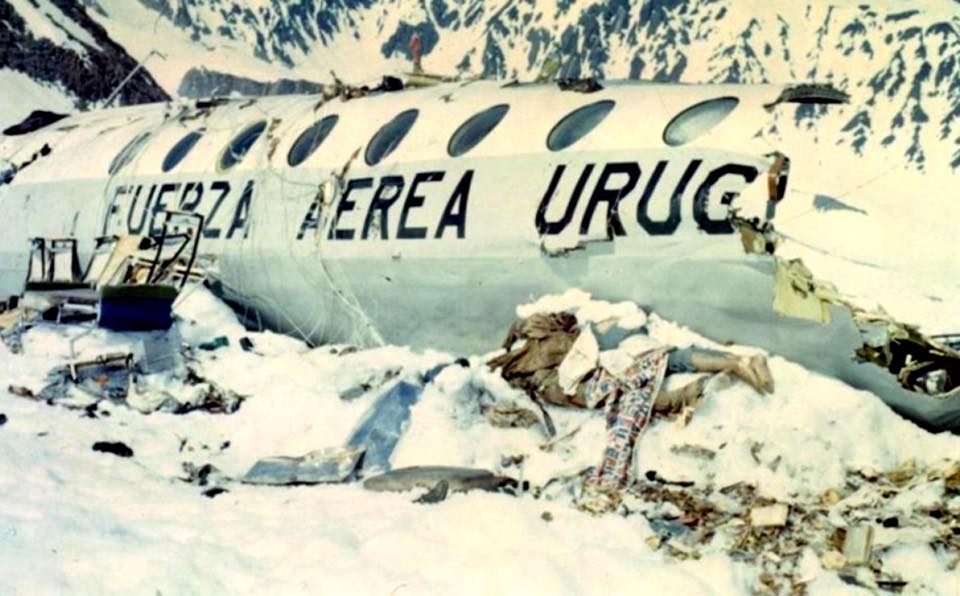
Soon there was no food left and no hope of finding anything. The weather was so bad that they were not able to venture far from the crash site. Faced with the threat of starvation, they had only one option: to eat the bodies of the deceased. After coming to terms with their choice, they decided on a few simple rules: they would not eat the bodies of women or anyone who had children. If they were going to become cannibals, they at least wanted to be civilized cannibals.
After 72 days exposed to the elements, the survivors knew that they had to take action. Most of them were too weak to make the journey down the mountain, but a couple of them still believed they could make it and left in search of help. After 10 days they managed to cross the border into Chile and came upon an unbelievable sight: they saw a person down in the valley on the other side of a river. They yelled as loudly as they could but the person was too far away to hear. The river was also too big to cross, so instead the man tied some paper and a pencil to a stone and threw it over to them so they could write out their message. When the survivors threw it back to him, he opened it and read this…
«I come from a plane that crashed in the mountains. I’m Uruguayan. We have been walking for 10 days. I have a friend wounded up there. Near the plane there are 14 injured people. We have to get out of here fast and we do not know how. We do not have food. When are they going to come get us? Please, we can not even walk. Where are we?»
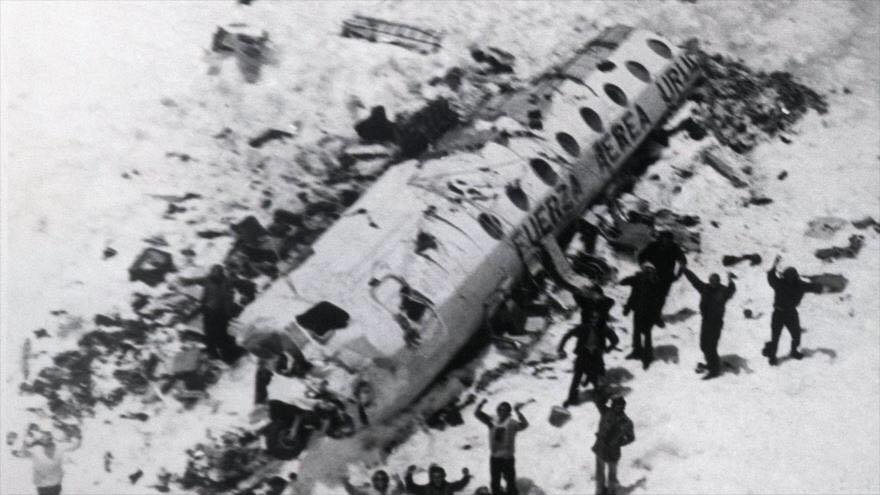
The man threw some bread and cheese to them and then went to alert the Carabineros (the Chilean police), who were quick to rescue the two men who had gone out to seek help. When news of the survivors reached the authorities, they quickly assembled a rescue team and began searching the mountain to find the 14 people still left there. After three days, they spotted a group of people shouting and cheering. They had been found and their nightmare was finally over.

When rescuers arrived on the scene, they quickly noticed the half-eaten corpses around the crash site. The survivors were honest with them and confessed to their cannibalism. They expected to be ridiculed for what they had done, but surprisingly, everyone including the victims’ families forgave them. They understood that they had only done what they needed to in order to survive.
This story is a perfect example of how strong the will to live can be. As Carlos said, «We were not going to die without putting up a fight because they took everything from us, even the lives of those we loved, but no circumstance could break our faith.» He and the other survivors will forever be haunted by what they had to do to keep from dying on that cold, desolate mountain. But they are all still alive. And most importantly, they have all been forgiven.
Source
